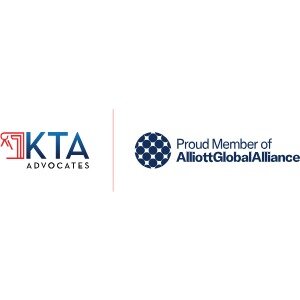Best Contract Lawyers in Uganda
Share your needs with us, get contacted by law firms.
Free. Takes 2 min.
Or refine your search by selecting a city:
List of the best lawyers in Uganda
About Contract Law in Uganda
Contract law in Uganda is primarily governed by the Contracts Act 2010, which establishes the legal framework for creating, executing, and enforcing contracts in Uganda. This law outlines various types of contracts, the elements necessary for their validity, the rights and duties of parties involved, and remedies for breach of contract. Contract law ensures that parties to a contract can rely on the legal system for enforcement, fostering a predictable business environment.
Why You May Need a Lawyer
There are several common situations where individuals or businesses may require the assistance of a lawyer in matters related to contracts:
- Drafting and Reviewing Contracts: To ensure that contracts are legally sound, clear, and protect your interests.
- Negotiation of Terms: To help negotiate favorable terms and conditions before entering into a contract.
- Dispute Resolution: For resolving any conflicts that arise from the interpretation or performance of a contract.
- Enforcement of Contractual Obligations: To pursue legal action if another party fails to fulfill their obligations.
- Complex Business Transactions: For transactions involving joint ventures, mergers, or acquisitions where intricate contract law knowledge is crucial.
Local Laws Overview
Key aspects of local laws relevant to contracts in Uganda include:
- Offer and Acceptance: A binding contract requires a clear offer by one party and an acceptance by another.
- Consideration: Each party must exchange something of value for a contract to be legally binding.
- Capacity: Parties must have the legal capacity to contract, meaning they are of sound mind and not minors.
- Consent: Consent must be free from coercion, undue influence, fraud, or misrepresentation.
- Legality of Purpose: The purpose of the contract must be legal and not against public policy.
- Performance and Breach: The law specifies the performance obligations and consequences of breach.
Frequently Asked Questions
What constitutes a valid contract in Uganda?
A valid contract requires an offer, acceptance, consideration, parties with capacity, genuine consent, and legality of purpose.
Can verbal contracts be enforced in Uganda?
Yes, verbal contracts can be enforceable, except for specific agreements required by law to be in writing, such as contracts for the sale of land.
What is the statute of limitations for contract claims in Uganda?
The statute of limitations for contract claims is generally six years from the date the cause of action arose.
Can a contract be modified after it is signed?
Yes, parties can modify a contract if all involved parties agree to the changes, and it is documented in writing if required by the original contract terms.
What happens if there is a breach of contract?
The non-breaching party may seek remedies such as damages, specific performance, or contract rescission, depending on the case specifics.
Are penalty clauses enforceable in Uganda?
Penalty clauses are generally enforceable as long as they are reasonable and not punitive, serving as a genuine pre-estimate of loss.
Is there a difference between an agreement and a contract?
Yes, all contracts are agreements, but not all agreements are contracts. A contract is a legally binding agreement, while not all agreements have legal enforceability.
How is a force majeure clause treated under Uganda’s contract law?
A force majeure clause can excuse parties from performing contractual obligations due to events beyond their control, subject to the contract terms.
What are the remedies available for a breach of contract?
Remedies include compensatory damages, punitive damages (rarely), specific performance, and restitution, based on specific circumstances and contract terms.
Can a third party enforce a contract in Uganda?
Generally, only parties to a contract can enforce it, but there are exceptions under the principle of privity of contract whereby third parties may have enforceable rights.
Additional Resources
For further assistance or information, consider consulting the following resources:
- Uganda Law Society for information on legal professionals and rights.
- The Ministry of Justice and Constitutional Affairs for official publications and updates on contract law.
- Local chambers of commerce and industry groups that may offer legal advisory services or referrals.
- Legal Aid Clinics, which may provide pro bono services or legal advice for those in need.
Next Steps
If you need legal assistance in contract matters, consider taking the following steps:
- Consult a Qualified Lawyer: Engage a lawyer specializing in contract law for personalized advice and representation.
- Gather Relevant Documents: Prepare and organize all necessary documents, including any existing contracts and correspondence related to the legal issue.
- Research: Familiarize yourself with your rights and obligations under Ugandan contract law using reputable sources.
- Contact Relevant Authorities: For formal disputes, consider contacting the relevant legal bodies or arbitrators.
- Stay Informed: Keep abreast of any changes in legislation that may impact your contract and its enforceability.
Lawzana helps you find the best lawyers and law firms in Uganda through a curated and pre-screened list of qualified legal professionals. Our platform offers rankings and detailed profiles of attorneys and law firms, allowing you to compare based on practice areas, including Contract, experience, and client feedback.
Each profile includes a description of the firm's areas of practice, client reviews, team members and partners, year of establishment, spoken languages, office locations, contact information, social media presence, and any published articles or resources. Most firms on our platform speak English and are experienced in both local and international legal matters.
Get a quote from top-rated law firms in Uganda — quickly, securely, and without unnecessary hassle.
Disclaimer:
The information provided on this page is for general informational purposes only and does not constitute legal advice. While we strive to ensure the accuracy and relevance of the content, legal information may change over time, and interpretations of the law can vary. You should always consult with a qualified legal professional for advice specific to your situation.
We disclaim all liability for actions taken or not taken based on the content of this page. If you believe any information is incorrect or outdated, please contact us, and we will review and update it where appropriate.
Browse contract law firms by city in Uganda
Refine your search by selecting a city.

















